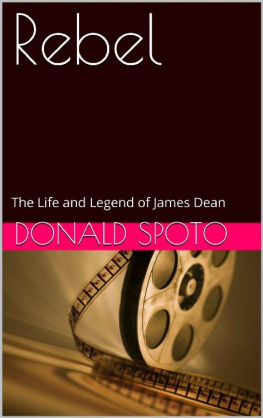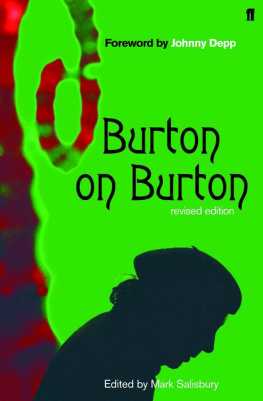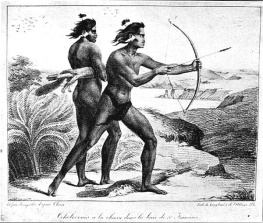


Published by The History Press
Charleston, SC
www.historypress.net
Copyright 2017 by Wesley H. Clark and Michael B. McDaniel
All rights reserved
Front cover: Use of Johnny Carson Burbank poster courtesy of Carson Entertainment Group.
First published 2017
e-book edition 2017
ISBN 978.1.43966.380.6
Library of Congress Control Number: 2017948514
print edition ISBN 978.1.62585.986.0
Notice: The information in this book is true and complete to the best of our knowledge. It is offered without guarantee on the part of the authors or The History Press. The authors and The History Press disclaim all liability in connection with the use of this book.
All rights reserved. No part of this book may be reproduced or transmitted in any form whatsoever without prior written permission from the publisher except in the case of brief quotations embodied in critical articles and reviews.
To all those who bought our previous book Lost Burbank
and enjoy our Burbankia website
Contents
Preface
Growing up happens in a heartbeat. One day youre in diapers, the next youre gone, but the memories of childhood stay with you for the long haul. I remember a time, a place, a particular Fourth of July, the things that happened in that decade of war and change. I remember a house like a lot of houses, a yard like a lot of yards, on a street like a lot of other streets. I remember how hard it was growing up among people and places I loved. Most of all, I remember how hard it was to leave. And the thing is, after all these years, I still look back in wonder.
Kevin Arnolds final voiceover from The Wonder Years
The authors are fond of The Wonder Years not only because it takes place in Burbank, California (more on that in another chapter), but because in the episode set during the 1972 presidential election, the protagonist, Kevin, is described as being sixteen. That makes him exactly the authors age. (Well save you from doing the math: we were born in 1956.) The Wonder Years, then, serves as a narrative metaphor for our own lives.
And what years they were! We are certain that everyone of any era considers their formative years to be special, but ours, we think, were unique.
We feel blessed to have come of age in the affluent 1960s and 1970s. Our parents were members of what has come to be known as the Greatest Generation, or the G.I. Generationthe people who lived during and fought in World War II. This also, inevitably, includes mention of the Great Depression. Talking to our parents about their younger years was often a matter of listening to how they endured tough times. They were children at a time when three square meals a day, a protective roof over ones head and a job were by no means assured things in America. For some, it seemed to be the end of American capitalism as a viable force for providing a good standard of living.
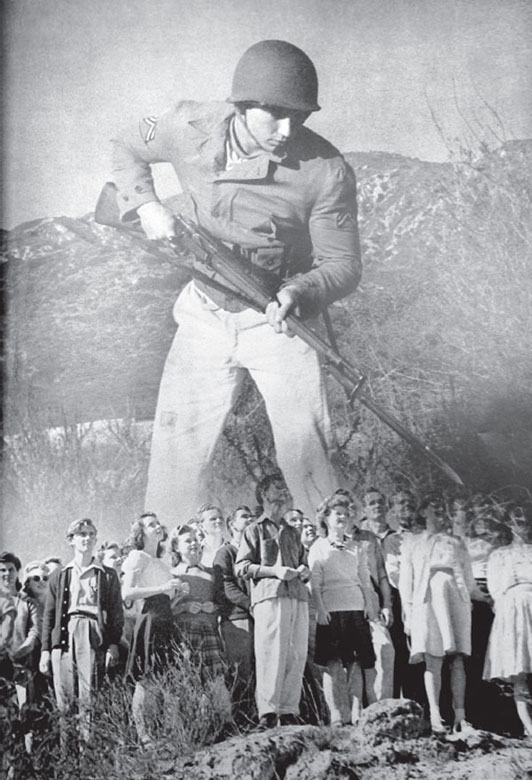
What was on male Burbank High School students minds after graduation? Military service. From the 1943 Ceralbus yearbook. Burbank Historical Society.
One of the formative experiences of our parents generation was hearing the radio announcement of the bombing of Pearl Harbor by the Japanese; America was threatened in a very real way and directly felt the hand of war. Discussions with our parents also included food rationing, loved ones being away at war and, eventually, victory. But victory came with a certain and much-discussed national loss of innocence that even permeated the movies our parents watched. (A signal characteristic of postwar film noir, or crime films of the 1940s and 1950s, was of societal corruption and GIs returning to an environment that seemed to be at odds with the apple pie American way they had fought to preserve.)
But the 1930s and 1940s morphed into the 1950s, when we were born, and for many years the largest single generational group of Americans was composed of females born in 1957. The baby boom was on! Our generation was celebrated for being better educated and fed and in possession of more leisure time than ever before. Unlike our parents, we had pocket money, which we freely spent on comic books and the other things we desired. The marketplace acknowledged that a wholly new socio-generational entity came into beingthe teenagerwith his and her own interests, passions and consumer luxuries. Prior to this time, you were either a child or an adult, and a casual glance through old Burbank High Ceralbus yearbooks showed that older teens wanted to look, act and dress like adults. But when a frustrated Paul Lynde sang about kids these days in the musical Bye Bye Birdie (1963), he was expressing our parents growing confusion and dismay with this new social force.
People often think of the 1950s as being a cheery, white bread and somewhat mindless decade for the young. America, presided over by a famously grinning President Eisenhower, saw the emergence of Elvis and the birth of rockn roll. But if you dig a little deeper you find that the era of sock hops was also the era of Rock Around the Clock (which illustrated the blight of juvenile delinquency), the Red Menace, atomic annihilation and subversive literature from the beatnik culture. Children are always susceptible to scares and causes for anxiety: they recall parents discussing the drug problem and generational unrest in the 1960s. Boomers have vivid memories of news footage of the Berlin Wall being erected in 1961that was scary, too.
Prior to the escalation of the Vietnam War, Baby Boomers were upbeat and excited by the announced coming of the space age or, as it was sometimes called, the atomic age. But later on in the sixties, the Age of Aquarius became the hoped-for milestoneless science, more mysticism. (Google says that, astronomically speaking, the earth doesnt move into the Age of Aquarius until AD 2597. The songwriters were obviously getting ahead of themselves.) Whatever the new era was to be called, life was bound to be happier, and we were all looking forward to the day when we could zip around town in cars like those piloted by George Jetson. After all, many of us were discontented, mired in an era somewhere between that of the Flintstones and the Jetsons. But optimism was the prevailing view in the early sixties. By the time the late sixties arrived, we had seen the Kennedy assassinations (both JFK and RFK), the Martin Luther King assassination, Vietnam-related campus unrest, riots, the generation gap and Altamont. America seemed to be tearing itself apart at the seams. The year 1969 was decidedly less cheery than 1960.
But to a great extent, we were isolated in suburban Burbank, nestled comfortably among the Verdugo Hills. Ours was not an inner-city experience, and in our little stucco-covered homes, we felt like the problems seen on our television tubes were other peoples issues, not ours. We were young, and life was easy, casual and idyllic. The patio culture beckoned, and the gentle weather and the low-key, informal Southern California atmosphere helped make growing up less traumatic.
A shameless plug: If you would understand the unique Southern California community of Burbanka land of People, Pride and Progress (a city motto in vogue when we were kids)it helps to read our previous work
Next page
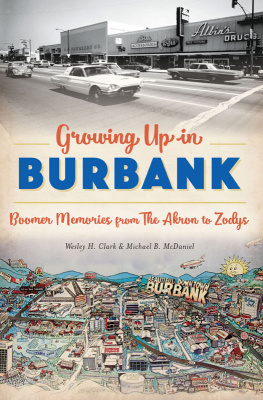

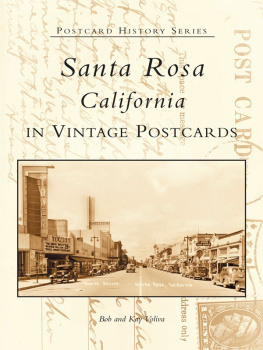
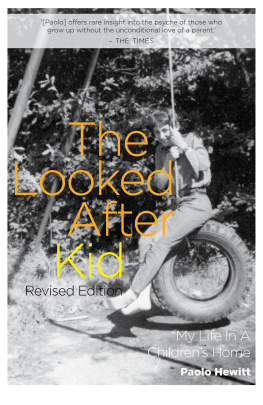
![Ashman Howard - Aladdin: Broadways new musical comedy ; [piano/vocal selections]](/uploads/posts/book/178685/thumbs/ashman-howard-aladdin-broadway-s-new-musical.jpg)
